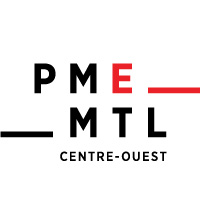While self-driving cars are making the headlines for autonomous technology, ARA Robotics, a company founded by three young engineering graduates, is working to make drones fly on their own safely, with minimum intervention.
“Efficiency, precision and reliability.” Those are the three attributes that ARA Robotique wishes to bring to the drone industry with its flagship innovation: an autopilot software called Skymate. Launched after three full years of research and development, Skymate actually consists of a controller that allows the craft to take off, fly, change course and land, all safely and without human intervention.
As a result of not needing to manually pilot the drone, the operator can then more fully concentrate on tasks such as data acquisition. The controller that makes this possible is a small box about the size of a deck of cards, designed for commercial and industrial multirotor drones.

The box is programmed in advance so the UAV follows an established route, gathers information as needed and avoids high-risk areas or places where legislation does not allow its passage. The device is fully autonomous, since Skymate acts as an electronic brain that takes care of the calculations governing direction and flying. In addition, the drone is fully agile as adjustments can be made to its programming if an unexpected obstacle is detected in its path or if the battery runs down.
A Vacant Niche
While every UAV whether manned or not has a controller, few drone operators have access to these more sophisticated controllers because the technology from the military and aerospace sectors is very expensive. This is where ARA’s innovation comes in: “Our sensors are similar to those of a cell phone, while those of competing controllers on the market originate from aircraft,” explains Pascal Chiva-Bernard, President and CEO of ARA. “As a result, we can offer manufacturers – who are our customers – much more affordable prices, 5 to 10 times lower, for equal efficiency: we took over a vacant niche.”
Constant New Uses
As a young company launched in 2014, ARA is already receiving calls from foreign players (from Japan, Taiwan and South America, among others) interested in its product. “Our Canadian roots help us in this regard,” says Pascal Chiva-Bernard. “Canada is very well known in the world for its aerospace industry. Yes, China is making significant progress in this area, but it is much more practical and easier for Western manufacturers to deal with North American partners.”
Relevant advice and added momentum.
Possible applications for this innovation are manifold, varying from mining work to surveying operations, agriculture, border security and inspection of hard-to-reach structural elements such as bridge underpasses. That said, other areas will be added as regulations adjust to progress in the area of security, according to Pascal Chiva-Bernard.
Financing Assistance and Relevant Advice
Recently in 2018, the ARA Robotics team sought out PME MTL to help launch its product in the United States. The organization thus provided financial assistance to the company at the crucial stage of its commercialization. “Their assistance gave us greater flexibility so we could reinvest in research and development,” says the CEO. “This sector is the nerve centre of our industry, as we are currently witnessing a race to occupy the field while, at the same time, applications and opportunities are multiplying.''
In addition to monetary support, PME MTL provided ARA Robotics with assistance in refining its business plan. “We quickly realized that their experts were giving us relevant advice and added momentum.”
ARA Robotics is supported by PME MTL Ouest-de-l'Île.
